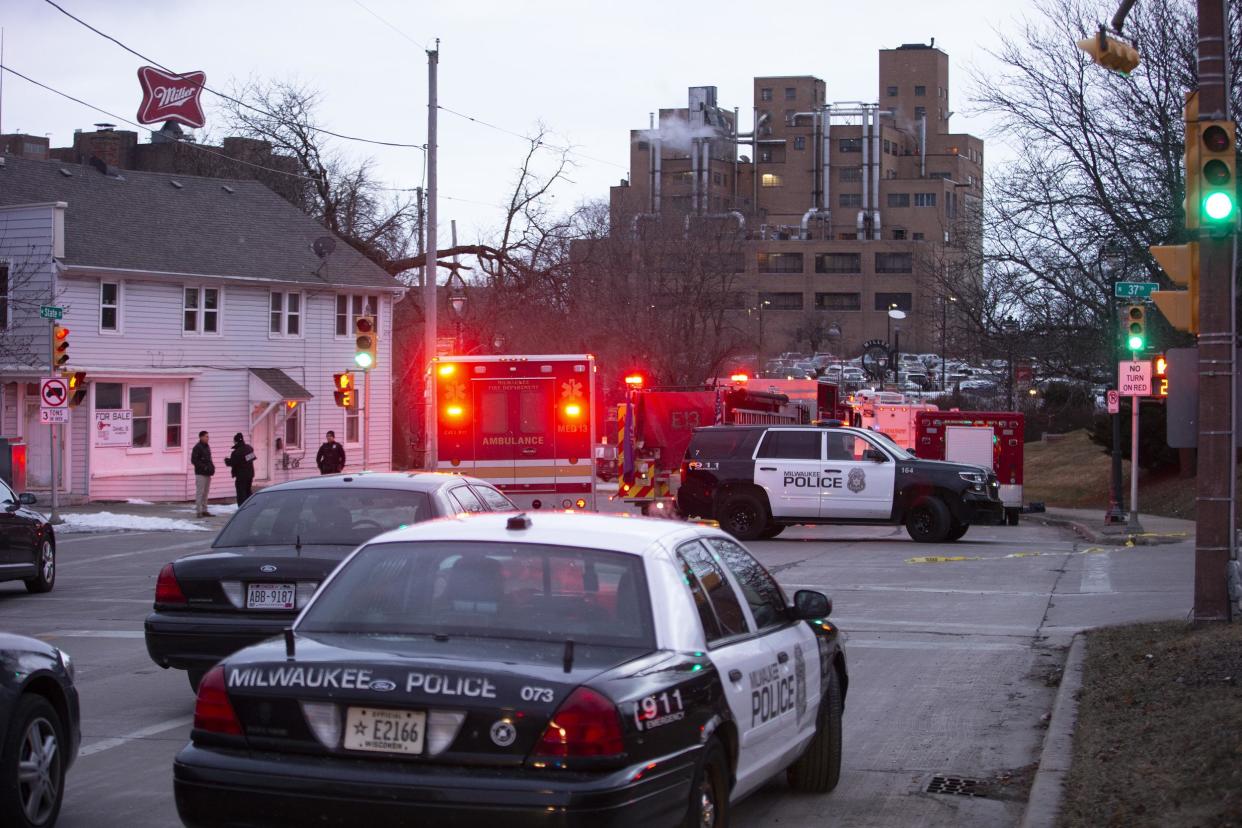Milwaukee mass shooting took place hours after politicians dismissed new gun laws as unnecessary

Hours before a gunman opened fire in a brewery and killed five people before killing himself, Wisconsin's governor had urged the Republican-controlled state legislature to strengthen gun control efforts in the state, a plea that was ignored by at least one conservative state senator after several attempts by the Democratic governor.
Despite the governor's message, the senate majority leader Scott Fitzgerald said the state's gun laws were not likely to change. "We're going to have that discussion about the Second Amendment forever ... a lot of the provisions that are in place already, people are satisfied with," he said.
That afternoon, a 51-year-old electrician who worked at the facility brought two handguns into the campus and killed five coworkers.
All five victims in Wednesday's attack were employees of Molson Coors Beverage Company, the multinational brewing company whose brands include the Miller and Coors lines, among others. Its Milwaukee facility employs 1,200 people.
Wednesday's shooting marks the 45th mass shooting in the US so far this year. It's the state's 11th mass shooting over the last 15 years, and the first in Milwaukee in nearly a decade.
In August 2012, a white supremacist killed six people and injured four others at a Sikh temple in Milwaukee County before killing himself during a shoot-out with police.
Wisconsin's governor, Tony Evers, expressed his condolences to the families of the victims "as we grapple with yet another act of gun violence that will have long-lasting consequences for this community and our state".
The governor is currently embroiled in a debate with Republican lawmakers who control the state's legislature after he vetoed their spending plan, which the governor said "failed to fulfil Republicans' own promise to get to two-thirds state funding for K-12 education, does not provide broad property tax relief or reduce reliance on local referenda for school funding, and leaves $123m less in the state's rainy-day fund".
Governor Evers also pressed the legislature to take up universal background checks for gun buyers as well as a "red flag" law that would give judges the ability to take guns away from people who are determined to be at risk of harming themselves or others, a measure that 17 other states have passed.
Another 21 states have similar universal background check laws in place.
Milwaukee lawmakers adjourned previous special sessions on those measures without debate, effectively killing them before they had reached the floor.
Governor Evers told The Associated Press on Thursday that he doesn't believe Wednesday's tragedy is likely to force Republicans to reconsider their position
He said: "As leaders, we have to pray and give our heartfelt condolences to people that pass away but, at the same time, we have an obligation as leaders to think about what solutions exist ... I think the people of Wisconsin deserve that too."
In his campaign against former Republican governor Scott Walker, Mr Evers sought stronger gun laws after Mr Walker and his allies loosened them — from legalising concealed-carry, removing a 48-hour waiting period for gun purchases, and passing a "castle doctrine" law that provides legal protections to homeowners who shoot intruders on their properties.
He also allowed off-duty and retired police to carry firearms on school campuses that are otherwise "gun-free zones", and signed off on a $100m plan to make grants available to schools for campus security in the wake of the murders of 17 people at Stoneman Douglas High School in Parkland, Florida, the deadliest mass shooting in US history


